
During the height of the Cold War, in a world besieged by fear, the Murkoff Corporation finds its calling: kidnap test subjects, surgically implant night-vision goggles, and then let them loose inside a giant game of hide and seek. The prize is freedom, but the risk is either death... or insanity.
Canadian developer Red Barrels is no stranger to things that go bump in the night. 2013's Outlast and its 2017 sequel Outlast II were all about blending the fear of the unseen with the fear of being seen by whatever was lurking in the darkness. In a way, the similarities to a childhood game of hide and seek are quite clear the not knowing if you'd been rumbled as you tried to stay quiet and motionless, even though you could see your pursuer inching closer to your hiding place.
Wrapped up in a heavy storyline involving the criminally insane, murderous cultists and MKUltra mind control experiments gone awry (not that they could go any other way), the Outlast games offered something of a unique horror experience in that they encouraged players to avoid confrontation and rely squarely on the flight component of the autonomic nervous system. Creeping through the unlit corridors of Mount Massive Asylum or among the cornfields and outbuildings of Coconino County with only the night-vision mode of your video camera to aid your investigation and escape, there was something truly primal about Outlast's brand of survival/psychological horror that, while arguably reliant on many tropes of the genre, also made them some of the most intense games of their generation.
SOCK PUPPETS
This story is from the {{IssueName}} edition of {{MagazineName}}.
Start your 7-day Magzter GOLD free trial to access thousands of curated premium stories, and 9,000+ magazines and newspapers.
Already a subscriber ? Sign In
This story is from the {{IssueName}} edition of {{MagazineName}}.
Start your 7-day Magzter GOLD free trial to access thousands of curated premium stories, and 9,000+ magazines and newspapers.
Already a subscriber? Sign In

"The War Within itself has kept me coming back most evenings too"
WORLD OF WARCRAFT remains my jailer, and I couldn't be more pleased about it
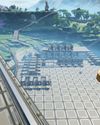
OK BUILDER
SATISFACTORY is the new titan in building and crafting games
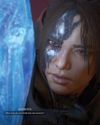
HELL YES
DIABLO IV: VESSEL OF HATRED is a transformative expansion
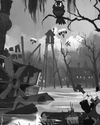
MOUSE: PI FOR HIRE
This mouse wants to be more than just a gimmick
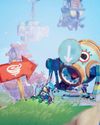
WINDBLOWN
Dead Cells dev's new roguelike has me afraid for my free time
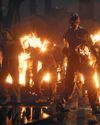
NO MORE ROOM IN HELL 2
As the zombie horde surrounded me just moments after taking down my two remaining teammates, the writing was really on the wall. Armed with just a chef's knife, it was clear I stood no chance, but I was going down swinging, hoping for a miracle... it didn't come.

OWNED BY STEAM
VALVE cordially reminds you that your games aren't yours

CURSE OF THE AZURE BONDS
These classic games haven't aged badly, but I sure have.
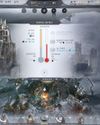
DEEP FREEZE
Endure a blizzard of tough choices and rough consequences in FROSTPUNK 2
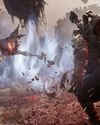
NEW HORIZONS
Building up REMNANT 2 outside the live service game grinder